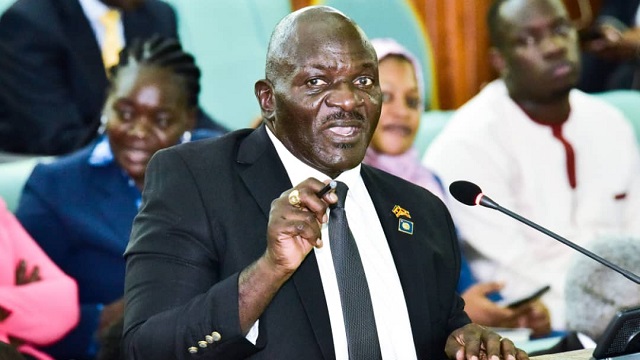
Kampala, Uganda | THE INDEPENDENT | The government has finalised a draft bill to repeal the Engineer’s Registration Act 1969, with the aim of ensuring better regulation of the sector. According to Gen. Edward Katumba Wamala, the Minister for Works and Transport, the Act is too outdated to cater to the current and emerging challenges that affect the engineering profession and occupation.
The Engineers Registration Act 1969 is applied to regulate the works of engineers mainly by ensuring that the persons engaged in the occupations are registered. However, with the change in terrain and emerging requirements and demands in the industry, both the practitioners and regulators agree on the need to have appropriate laws.
State Minister for Works Musa Ecweru promised to table a new Engineering Bill that responds to the current challenges and helps define who an engineer is in the current situation.
He was speaking at the four-day celebrations of World Engineering Day, which ended on Saturday at Hotel Africana. The day which falls on March 4th of every year is marked worldwide to recognize the works of engineers in various areas including electrical, civil, and recently digital.
Works and Transport Minister, General Edward Katumba Wamala explained that the process is not an amendment, but will repeal the whole 53-year-old law. He said the law will help weed out quacks and also raise the low numbers of registered engineers, including women. This, he says will even help to monitor what they do.
Some of the challenges facing the growth and professionalism of the engineering sector include low levels of education and limited research, according to the government. The Secretary of the Engineers Registration Board, Robert Namugera says there are currently about 20,000 qualified engineers, but that only 1,642 are registered.
This he says means that most of the engineering works are being carried out by unregistered persons, making monitoring and regulation hard. Repercussions of poor regulation have been blamed for the constant cases of collapsing buildings, especially in Kampala, many of them even during construction.
Others are roads, bridges, and other structures that get damaged soon after completion, as a result of shoddy work. Eng. Isaac Mutenyo said they are happy with the improvement of government technical institutes, as well as the curriculum that they hope will improve the output quality from these colleges.
Speaking on the current challenges, the Permanent Secretary of the Ministry of Works and Transport, Waiswa Bageya gave an example of floods, and earthquakes as demand for buildings shifts more to high-rises. Climate change and pandemics like Covid-19, as well as wars also call for deeper research and innovation by engineers, according to Bageya.
There was also a call for efforts to increase the number of female engineers in the profession. Currently, out of the registered 1,642, only 147 are women. General Wamala said the proposed law also has a provision for reducing the gender gap in the profession.
But Rossie Agoi, the Secretary General of the Uganda National Commission for UNESCO (UN agency on science, education, and culture), says women leaders are the main impediment to the success of women in such areas as engineering. She says the community should go beyond some cultural aspects to increase opportunities for the girl child.
*****
URN
 The Independent Uganda: You get the Truth we Pay the Price
The Independent Uganda: You get the Truth we Pay the Price





